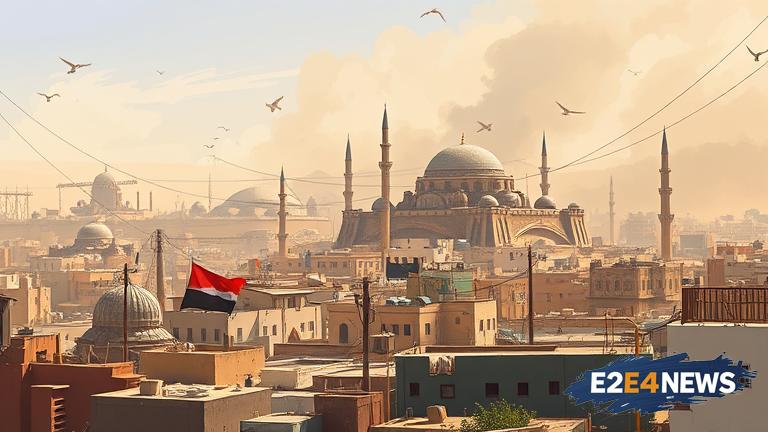The conflict in Yemen has been ongoing for years, with various factions vying for control of the country. The city of Sanaa, the capital, has been a key battleground, with the Houthi rebels, backed by Iran, fighting against the Saudi-led coalition, which includes the United Arab Emirates and other Gulf states. The conflict has resulted in a severe humanitarian crisis, with thousands of civilians killed or injured, and millions displaced. The recent bombing campaign by Israel has further complicated the situation, with the Israeli military targeting Houthi rebel positions in Sanaa. The Israeli government has stated that the bombing is in response to Houthi attacks on Israeli ships in the Red Sea. However, the bombing has also resulted in civilian casualties, with many innocent people caught in the crossfire. The international community has condemned the violence, with the United Nations calling for a ceasefire and an end to the hostilities. The conflict in Yemen has also had regional implications, with the war spilling over into neighboring countries, including Saudi Arabia and the United Arab Emirates. The conflict has also had global implications, with the United States and other Western countries providing military support to the Saudi-led coalition. The humanitarian crisis in Yemen has been exacerbated by the conflict, with many people struggling to access basic necessities like food, water, and healthcare. The situation has been further complicated by the COVID-19 pandemic, which has put a strain on the country’s already fragile healthcare system. The conflict in Yemen has also had a significant impact on the country’s economy, with the war disrupting trade and commerce. The country’s infrastructure has also been severely damaged, with many roads, bridges, and buildings destroyed. The conflict has also had a profound impact on the country’s culture, with many historical and cultural sites destroyed or damaged. The international community has called for a peaceful resolution to the conflict, with many countries providing humanitarian aid to those affected. However, a lasting solution to the conflict remains elusive, with the various factions involved showing little sign of compromise. The conflict in Yemen is a complex and multifaceted issue, with many different factors at play. The country’s history, geography, and culture have all contributed to the conflict, which has been fueled by regional and global powers. The conflict has also been driven by economic and strategic interests, with many countries vying for influence in the region. The humanitarian crisis in Yemen is a stark reminder of the devastating consequences of war, with many innocent people caught in the crossfire. The international community must continue to work towards a peaceful resolution to the conflict, with a focus on protecting civilians and promoting humanitarian aid. The conflict in Yemen is a complex and challenging issue, but it is not impossible to resolve. With the right combination of diplomacy, humanitarian aid, and international pressure, it is possible to bring an end to the hostilities and promote a lasting peace. The people of Yemen deserve nothing less, and it is the responsibility of the international community to support them in their time of need. The conflict in Yemen is a reminder that even in the most difficult and challenging situations, there is always hope for a better future. The international community must continue to work towards a peaceful resolution to the conflict, with a focus on promoting humanitarian aid, protecting civilians, and supporting the people of Yemen as they work towards a brighter future.
